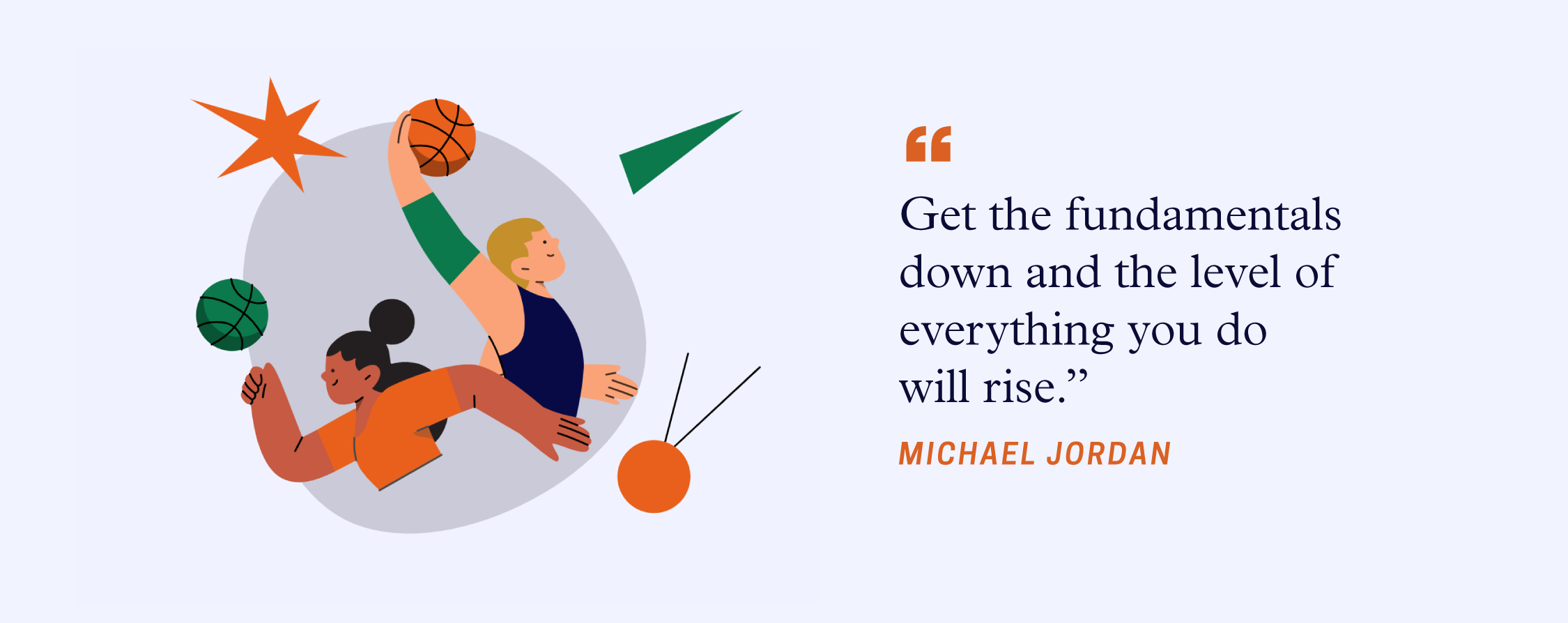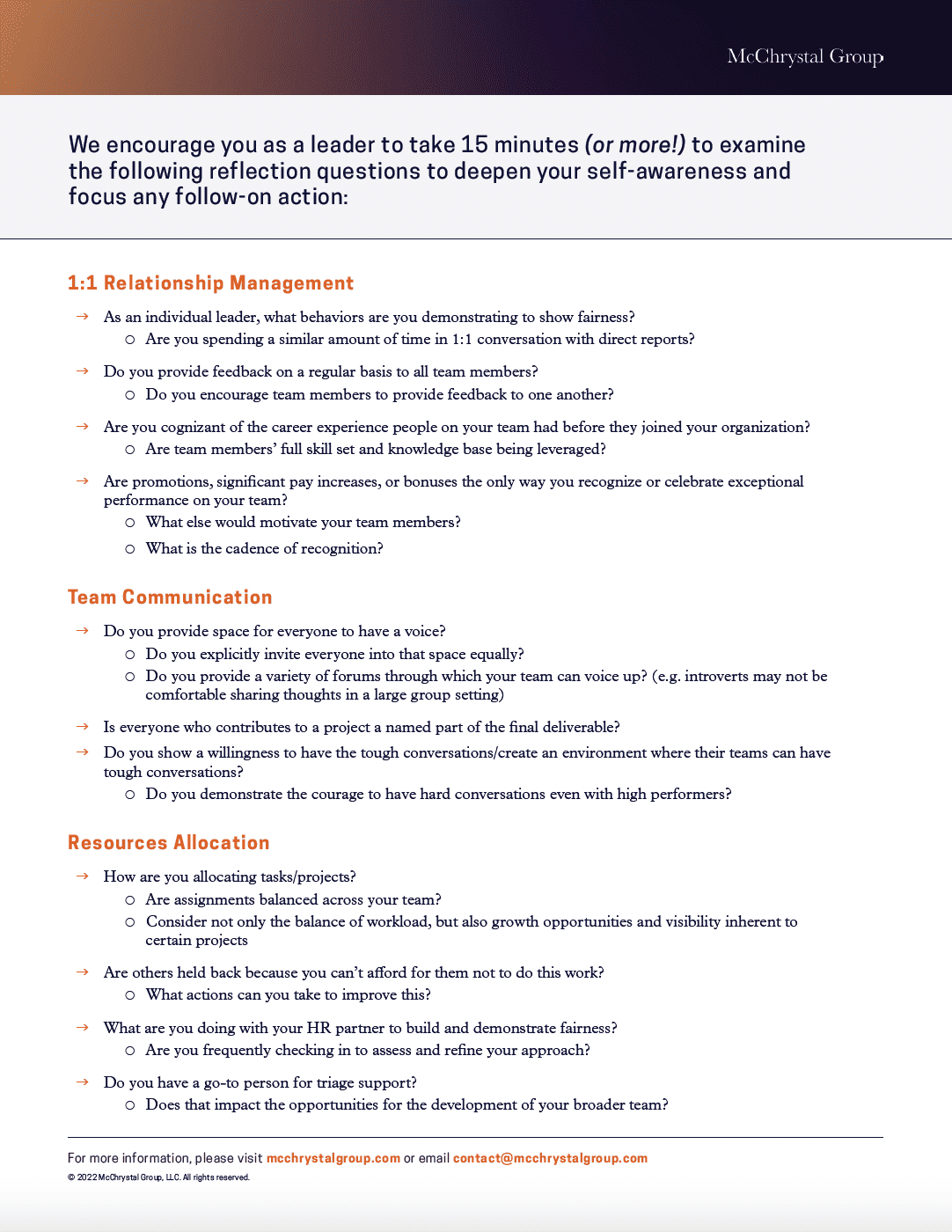To paraphrase the legendary Michael Jordan – great teams master the fundamentals. And from McChrystal Group’s extensive research into team performance, we know that these words are just as applicable to the boardroom as the basketball court.
Of course, the corporate world involves less passing and dribbling than the world of basketball – but in both worlds, success is defined by the chemistry with which we work together as a team. Through our decades of experience cultivating high performing environments, McChrystal Group has determined that the strength of that chemistry is first measured by the perceptions of fairness within our teams. We cannot expect bigger paychecks, better technology, faster processes to be the key that unlocks a game-winning streak, as many headlines might suggest, if we can’t reliably handle the ball in the first place.

We’d like to invite you to come alongside us as we first consider what perceptions of fairness are and then touch on why they matter. From there, we will endeavor to approach our own environment with new eyes, leveraging curiosity to uncover opportunities to shore up our game and enable our teams to thrive.
What are Perceptions of Fairness & Why Do They Matter:
One of the foundational elements of high performing teams is a shared perception of fairness within the work environment. When you look up the term fairness, it will return concepts such as just treatment, impartiality, lack of favoritism or bias. While we’ve all heard the phrase that life isn’t always fair, most will agree that at work it should be, and leaders have a direct role in ensuring that happens.
There are a few dimensions to fairness perceptions at work– but the most foundational one is the structural aspect of fairness. This entails clearly communicated and understood policies and procedures that support your teammates without prejudice (for example, transparent HR practices around pay and promotions). Without this foundation in place, any other attempts to improve perceptions of fairness will likely fail. As a leader it is your responsibility to have a strong relationship with your talent representatives to advocate for and ensure your employees are effectively supported.
Once those policies and procedures are in place, leaders can then play a direct role in building fairness through the way they show up for their teams in their day-to-day operations. How leaders manage their teams includes providing clear goal alignment, and defining roles and responsibilities. But beyond that, it also requires paving equitable pathways for mentoring, providing a balanced distribution of work, and ensuring opportunities are equitably assigned.
We encourage you as a leader to examine the following questions to deepen your self-awareness and focus any follow on action.
Download our exercise guide below.






